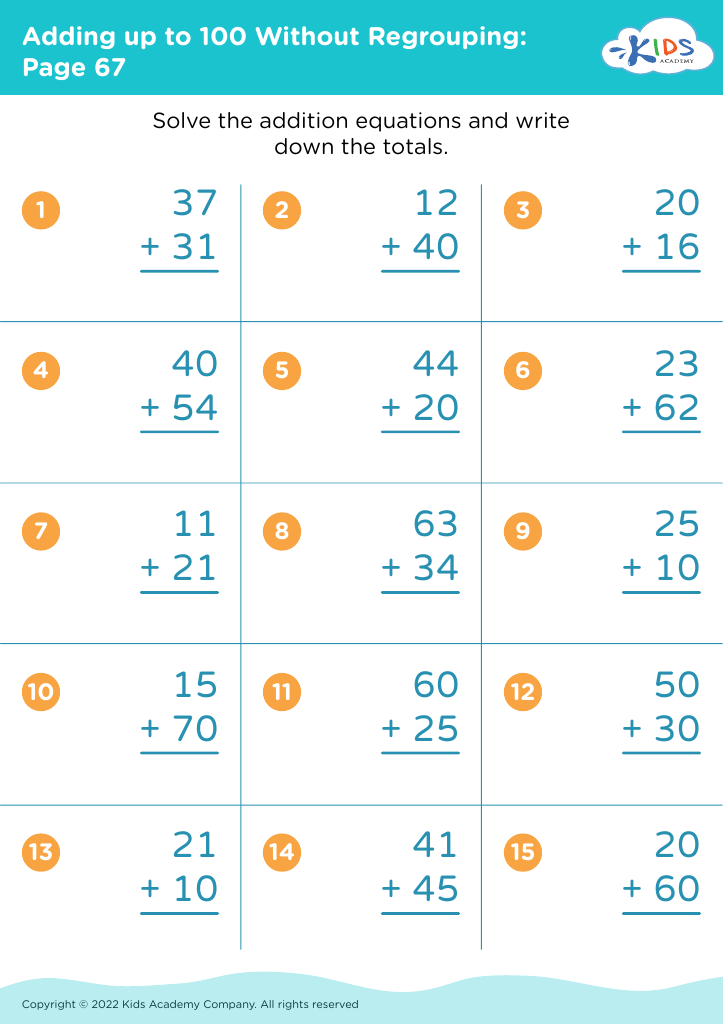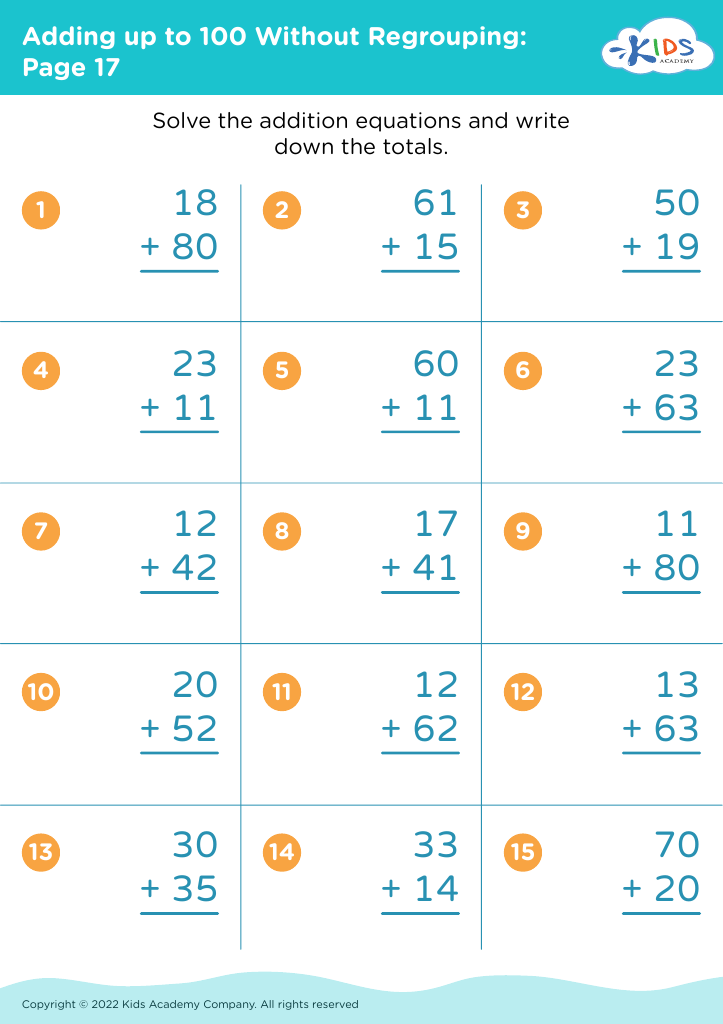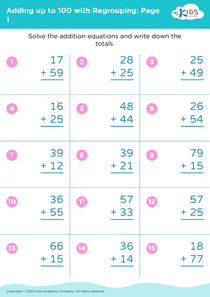Counting skills Adding up to 100 Without Regrouping Worksheets for Ages 6-7
6 filtered results
-
From - To
Develop your child's counting skills with our expertly designed "Counting Skills Adding up to 100 Without Regrouping Worksheets" for ages 6-7. These engaging worksheets help children enhance their addition abilities by working on problems that sum up to 100, all without regrouping. Perfect for first and second graders, these activities are tailored to build a strong foundation in basic math concepts and boost confidence. Fun visuals and child-friendly designs ensure that kids enjoy their learning journey while mastering essential counting skills. Download now and watch your young learner thrive in math!
Counting skills and addition up to 100 without regrouping are fundamental math skills that serve as building blocks for young learners aged 6-7. Mastery of these skills is important for several reasons.
First, they provide a concrete foundation in number sense, helping children understand the relationship between numbers. This early comprehension is critical as it forms the basis for more complex mathematical concepts such as regrouping, subtraction, multiplication, and beyond.
Secondly, these skills promote cognitive development. Practicing counting and basic addition enhances memory, attention, and problem-solving abilities. This kind of mental exercise can improve overall academic performance, as math skills are integral to subjects like sciences and, increasingly, to digital literacy.
Moreover, having a grasp of basic math operations fosters confidence and a positive attitude towards learning. When children are adept at counting and simple addition, they are more likely to approach new mathematical challenges with enthusiasm rather than apprehension.
Additionally, these skills lay the groundwork for real-world applications. From managing allowances to understanding time and measurement, basic arithmetic is crucial for everyday tasks.
In summary, ensuring that children master counting and addition without regrouping by ages 6-7 sets them up for success in both their academic journey and real-life situations. строитель blanc carinas Apostle acids


















